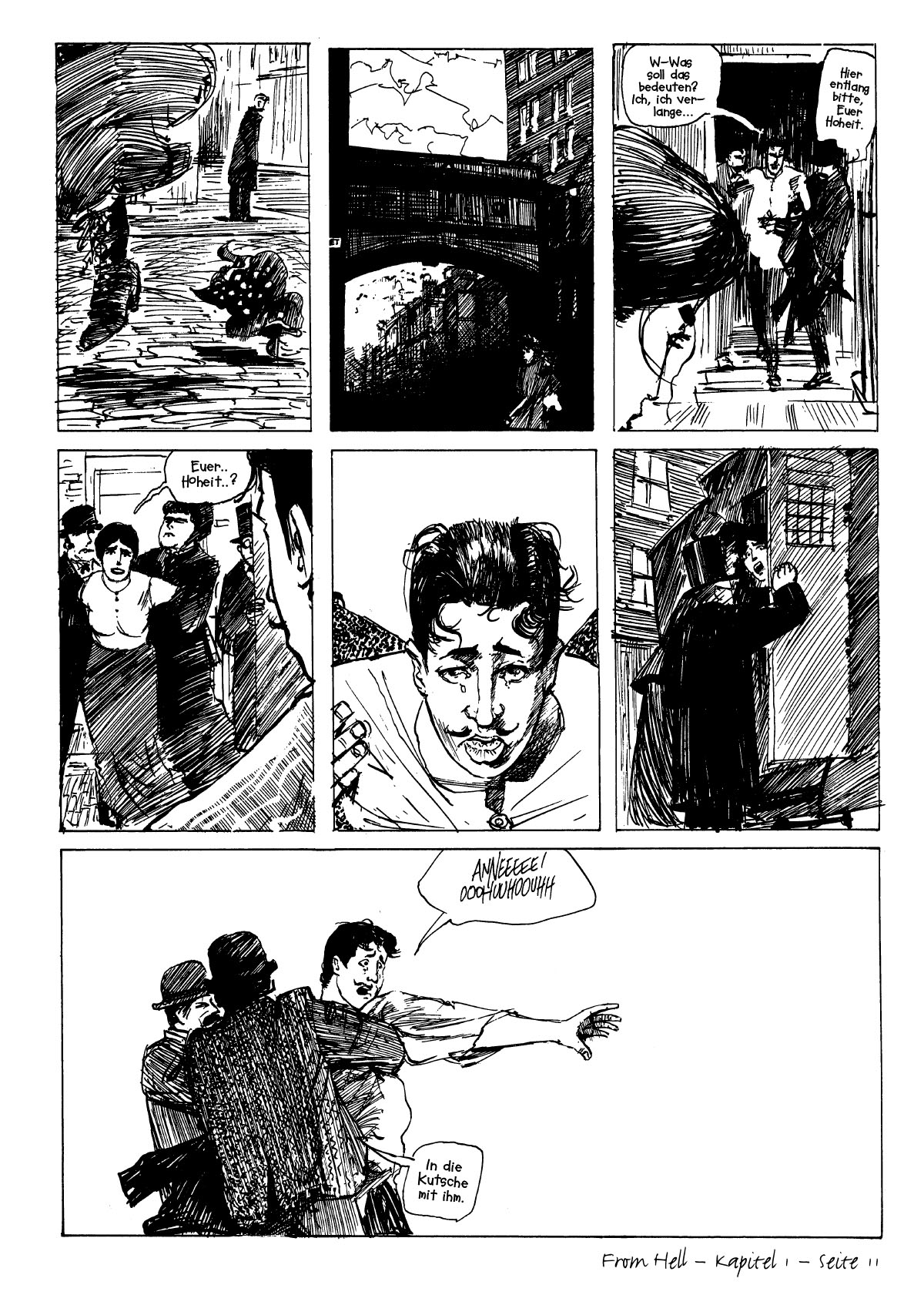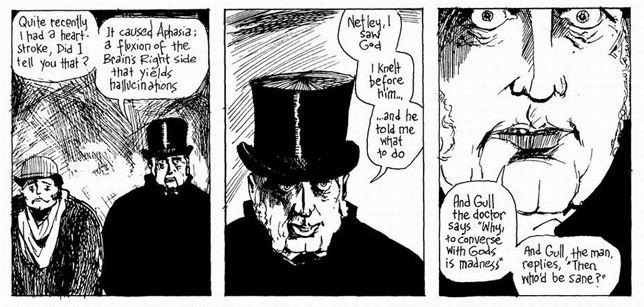

The longest piece by far is What We Can Know About Thunderman, which you could read as Moore’s farewell to the comics industry more of a “good riddance” than “ae fond kiss”. Jeffrey Dean Morgan in Watchmen from 2009. Cold Reading is a twist-in-the-tale ghost story with a flavour of WW Jacobs while the title story – describing a lonely middle-aged man’s nostalgic return to the English seaside resort where he spent his childhood holidays, based on a similar trip Moore made to Yarmouth – has a Ray Bradbury vibe.

The Improbably Complex High-Energy State imagines a sort-of-civilisation’s rise and fall in the first zeptosecond after the big bang.

American Light: An Appreciation plays a Pale Fire-style trick with the footnotes to an imaginary beat generation poem tracing a journey through the streets of San Francisco. Location, Location, Location finds a conveyancing solicitor introducing the messiah to his new property (an end-of-terrace house in Bedford original site, as it turns out, of the Garden of Eden), while the biblical apocalypse takes place, gaudily, overhead. Not Even Legend imagines a paranormal being infiltrating a meeting for enthusiasts of the paranormal. Formally and tonally varied, each is a little feat of world-building. The stories in Illuminations follow where Peake and those other writers led. The Gormenghast novels, he says, “were probably the first books where I began to understand just what you could do with writing: how he could conjure this entire complex environment and these almost fluorescent characters that stayed in your mind for ever”. The young Moore tore through Edgar Rice Burroughs, Edgar Allan Poe, Ray Bradbury, HP Lovecraft and, especially, Mervyn Peake. So, although Moore avowedly dislikes nostalgia, short fiction is a sort of coming home – back to the library he joined at the age of five and, once he’d outgrown Enid Blyton and Just William, where he got his teeth into science fiction and fantasy. Yet he has always had literary roots: his best-known work, Watchmen, took its title from Juvenal, and The League of Extraordinary Gentlemen was peopled by the canonical characters of 19th-century adventure stories. “But when I started my professional career, it tended to take a bit of a back seat because there were other things going on.” “Other things”, for those who don’t know Moore’s work, is his gracefully understated shorthand for a 40-year career in the funny papers that made him probably the most respected comics writer on the planet. He is speaking to me from his home in Northampton for the launch of Illuminations, a short story collection – and, at the age of 68, his first. I ’ve been enamoured of prose fiction for quite a long while,” says Alan Moore.


 0 kommentar(er)
0 kommentar(er)
